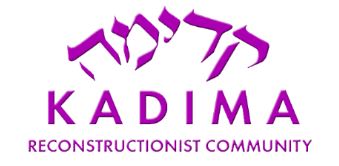I am trained as an educator, counselor, facilitator, and organizer. And these roles have served me and met me well. They are some of the primary attributes that Reconstructing Judaism (RJ) and the Reconstructionist Rabbinical College (RRC) promote. So pardon me as I attempt something I am neither good at nor trained in. So it feels, at least.
Obligation is a tricky subject outside of Orthodox Judaism and the “post-halakhic age,” which Rabbi Jack Cohen z"l called the 21st century in his 2010 book. To make an analogy we talk about with Kadima’s 5th and 6th graders, Jews can sometimes be like soggy cornflakes in the milk of assimilation.
There are many ways out of the milk that our people have and still valiantly attempt, for the sake of self-determination, anti-assimilation, cultural preservation, tradition, joy, wisdom, connection, and community. Thank G-d.
And still, without obligation, the entire project could simply be a whim (who says I can’t worry?). As a Jewish leader who invests and believes in these many ways out of the milk and more, it can feel precarious sometimes, and often I see the slippage back into the cereal bowl. I’ll speak for myself - I often slip back into the bowl and take a milk bath. Oy.
It happens to me after High Holidays sometimes. It happens to me, a little bit, after the after-glow of each glorious holiday, event, gathering, discussion, service, learning, teaching, concert, dance party, and shiva. The glorious presence of immersive Jewishness fades and a milk wave can overtake me.
Thank G-d (or whatever you thank) that there is regularity built into Jewish time (and its intersections with my paid work). I have been waking up this week and davening. I have been participating in a daily meditation led by K’ Keshira haLev Fife. I have been teaching mishnah and torah and preparing for shabbat. I have been saying kaddish with others. Thank G!d.
I am thinking about all of this in the context of our communal loss. I am still processing mads' death and have been doing so with mentors, teachers, students, loved ones, and in intentional solitude. The outpouring of mourners and those supporting us through shiva was both comforting and uplifting, all while still further devastating. And then at our first minyan for shloshim this past Friday, we got to a minyan before we closed, honoring so many losses together.
Barely having a minyan this past Friday got me thinking about our obligation. How our presence matters to each other and how showing up actually enables us to activate our tradition as a means of care for grief.
If we are not providing spaces that are accessible for you, then we need to fix that. If we haven’t made it clear that coming as you are is exactly right, then we need to fix that. If we haven’t expressed that having your camera off and your sound down and not interacting is a perfect expression of showing up, then we need to say that. And if we haven’t made it clear that you are very welcome, your presence is a gift, and your name on a black zoom square is enough - while you walk your dog, while you do your kid"s bedtime, while you're playing a game, while you're eating dinner, while you're thinking about other things, while your reading your book, while you're cooking food for yourself and/or others, and/or while you are present, then please, know it now.
Come, if for no other reason, because you matter to each other and there are literally parts of our tradition we cannot do without you. And if you do not need those parts today, your need for them is inevitable. And I want them to be there for you when you do.
That's it. Some call it an obligation. Some a mitzvah. Others the inescapable network of mutuality. Others might just say it’s showing up for each other and ourselves. However you say it, I hope we can find one another engaged in it.
But here is my goal: we have 10+ people at a Kadima event at least once a week through Passover as a practice of showing up. If you'd like to be a part of this two-month experiment, take a good look at Kadima's calendar and figure out the three-to-four events you might come to between now and then. Make it one or two if you need to and five or six if you can.
With gratitude and toward one another,
R’ David

 RSS Feed
RSS Feed